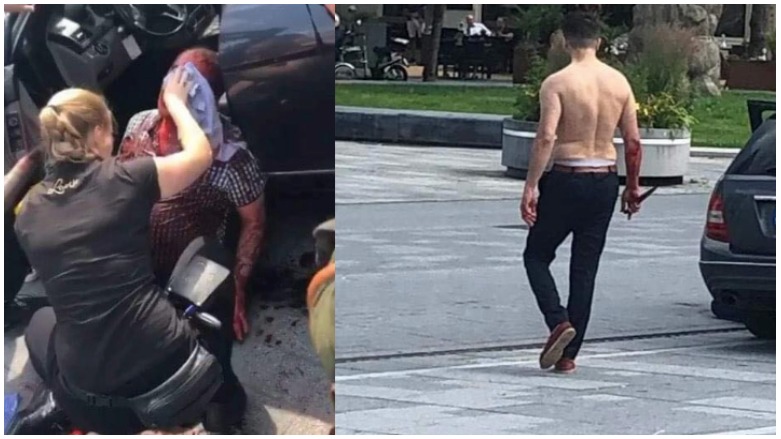Dutch Public Prosecution says Iran not behind attack on Iranian Kurdish politician
"The investigation has found no indications of state interference. This option has been explicitly included in the study, but no indications have been found for this."

ERBIL (Kurdistan 24) – The Public Prosecution Service in the Netherlands (OM) has concluded that the suspect of the murder attempt against Sadegh Zarza, the 64-year-old former leadership member of the Democratic Party of Iranian Kurdistan (PDKI) in the city of Leeuwarden, had a personal motive.
Initially, the family blamed the Iranian state that has been behind the assassination of other Kurdish leaders in Europe for the attack.
According to the judiciary, there are no indications that Iran is behind the attack, the OM said when asked, reported the Leeuwarden Courant newspaper on Monday.
The 38-year-old Iranian Kurd who is behind the stabbing will face his first public hearing at the court in Leeuwarden on Thursday. He allegedly tried to stab the victim with a knife in front of the station on June 19. Zarza was badly injured but survived the attack.
Shortly after his arrest, the suspect said he had a personal motive, according to his lawyer Peter Bonthuis. According to Bonthuis, his client said he “wanted to kill Zarza” because he holds him and the PDKI “responsible for the deaths of four friends.”
The Zarza family has always suspected Iran was behind the attack. They also mentioned that Zarza was on the kill list of the Iranian secret service.
It is not the first time Iran has killed Kurdish leaders abroad.
Last Monday marked the 26th anniversary of the assassination of former PDKI leader Dr. Sadegh Sharafkandi, and three others in Berlin by Iranian agents on Sept. 17, 1992.
So far, the family has not responded to the claims of the Dutch Prosecution service.
The suspect got in touch with his victim through his father, who is said to be a former classmate of Zarza.
“The investigation has found no indications of state interference. This option has been explicitly included in the study, but no indications have been found for this. The suspect has confessed, and he declares to have a personal motive,” Dutch prosecutor Bart Olmer told the Leeuwarden Courant.
However, the spokesperson did not reveal the suspect’s motive.
The criminal investigation into the case is almost complete. However, the detectives still want to speak to the suspect’s family members, who are in Iran.
Zarza was a PDKI Peshmerga commander for years, but fled to the Netherlands from Iran as a political refugee in 1986 after sustaining severe and permanently disabling injuries in a mortar attack.
In the Netherlands, he continued his work as a Kurdish dissident despite continued death threats by Iran.
Last year, the Dutch government recalled its ambassador from Tehran after Iran expelled two Dutch diplomats in a dispute over the assassination of the two dissidents.
Editing by Karzan Sulaivany